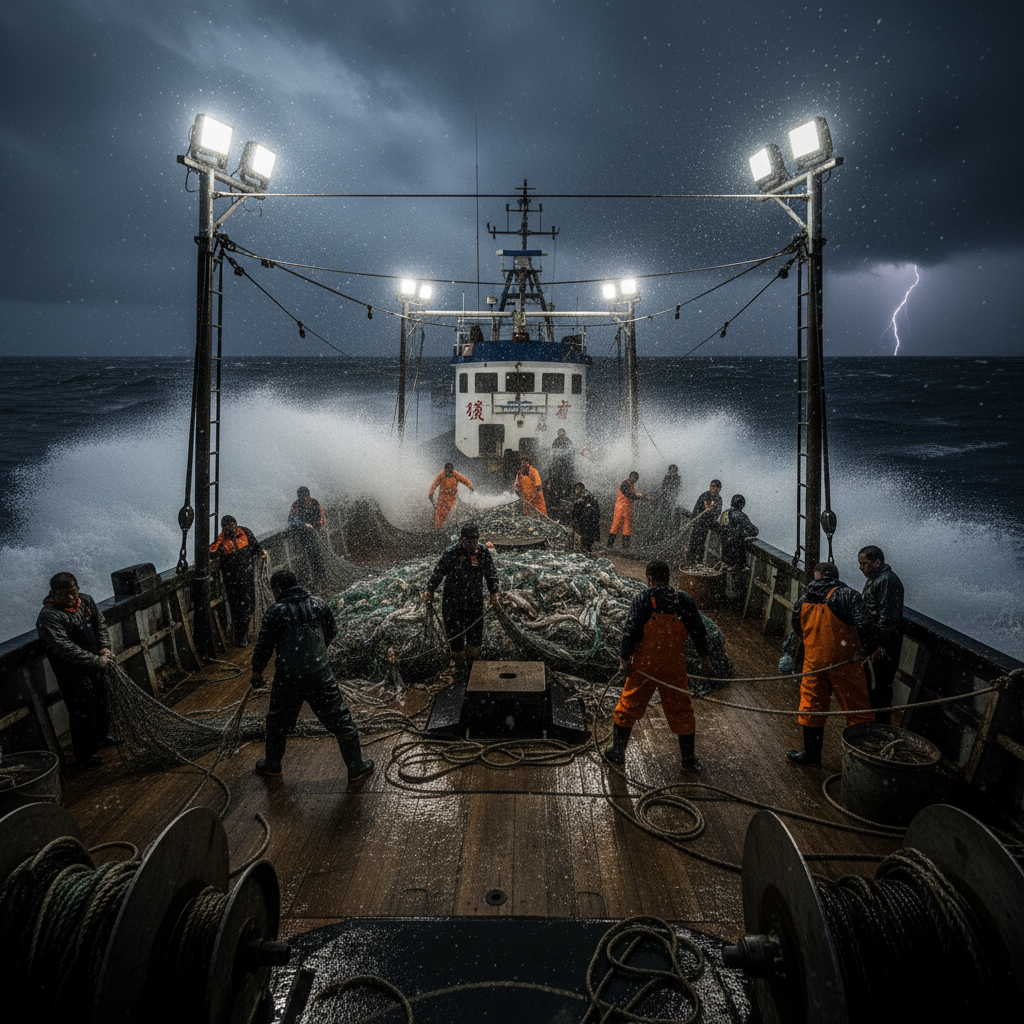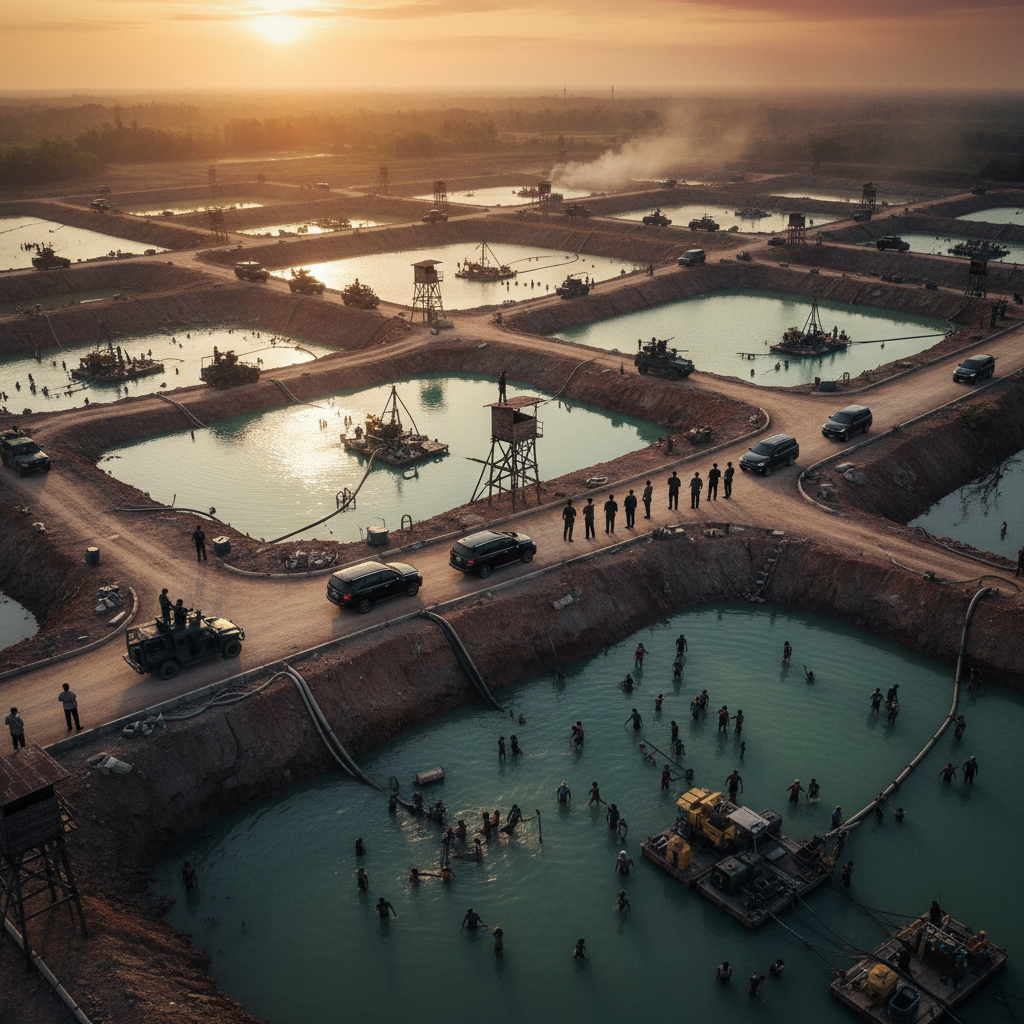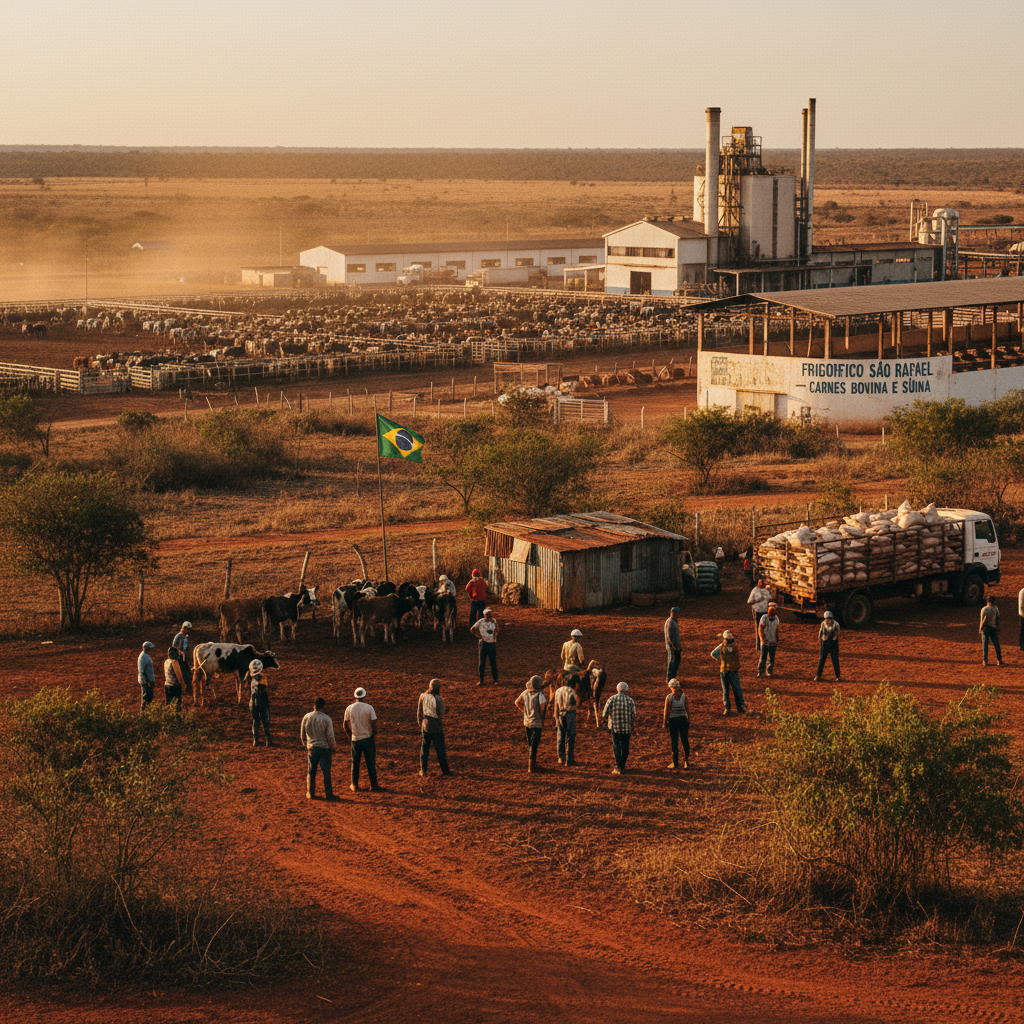Cobalt mining and modern slavery in Congo
As the world shifts towards cleaner and more sustainable energy solutions, cobalt has become a key component in supporting this transition. Cobalt is a critical raw material in the production of rechargeable lithium-ion batteries, which power electric vehicles (EVs), portable electronics, and energy storage systems. Furthermore, it is utilized in aerospace alloys, high-speed cutting tools, and industrial catalysts, making it indispensable in manufacturing processes across multiple sectors.
It is estimated that the Democratic Republic of the Congo (DRC) accounts for approximately 60% to 70% of the world's cobalt production, making it an important global supplier. Despite the resource abundance, the country has faced challenges in managing its mineral wealth and ensuring that the benefits reach the local population.
At the same time, cobalt mining in the DRC has been associated with concerns about modern slavery and human rights abuses. According to the 2023 Global Slavery Index, almost half a million people were living in conditions of modern slavery, including workers in the mining industry. The index grades the local government’s response with 36 points out of 100 - recognising recent efforts by authorities to address the issue but deeming them not far-reaching enough.

Severe incidents of abuse reported
Several reports and investigations have highlighted severe incidents of exploitation and abuse. Workers are exposed to hazardous working conditions, health risks, long hours, and low wages, while child labor is common. In some cases, workers have to mine without proper protective equipment and tools.
Artisanal and Small-Scale Mining (ASM), which takes place mostly in the eastern part of the country, is frequently associated with higher risks of labor rights violations and modern slavery due to informal and unregulated practices. In a 2016 report, Amnesty International highlighted the use of child labor and dangerous working conditions in artisanal cobalt mines.
However, some major mining and trading companies, including Glencore, have faced allegations and criticism regarding their cobalt sourcing practices and the potential links to modern slavery. In 2019, Amnesty International published a report accusing Glencore and other major mining companies of failing to adequately address child labor in the cobalt supply chain in the DRC. The report claimed that children as young as seven were working in dangerous conditions, with direct links to Glencore's supply chain.
DRC accounts for approximately 60% to 70% of the world's cobalt production, making it an important global supplier
Glencore operations in the DRC
Glencore is a multinational commodity trading and mining company incorporated in Switzerland. It is one of the world's largest suppliers of commodities such as metals, minerals, oil, and agricultural products. It operates across the entire commodity value chain, from mining and production to processing, refining, and marketing. In the DRC, Glencore has significant operations, particularly in the mining sector, extracting and exporting minerals such as copper and cobalt.
In recent years, Glencore has made efforts to increase transparency and strengthen its commitment to responsible sourcing through the Responsible Sourcing of Minerals program. This program aims to address social and environmental issues.
The presence of intermediaries and multiple layers in the cobalt supply chain can make it difficult to track labor rights abuses and modern slavery. Forced labor in cobalt mining can take different forms - such as debt bondage, coercion, threats, trafficking and smuggling. Miners may be trapped in a cycle of debt, often due to advances or loans provided by intermediaries or "bosses" who control their access to work and basic necessities. These debts can be exploitative, making it difficult for miners to escape their situation. Some individuals may be forced to work through coercion, threats, or physical violence. This can involve intimidation, exploitation of vulnerabilities, or the use of armed groups to control and exploit workers. Finally, the lack of transparency and regulation in the cobalt supply chain can enable human trafficking and smuggling, where individuals are transported across borders and subjected to forced labor in mining operations.
The Responsible Cobalt Initiative
These concerns have led to increased pressure on companies, governments, and international organizations to address the issue. Efforts are being made to improve supply chain transparency, strengthen responsible sourcing practices, and ensure the protection of human rights in the cobalt industry. Initiatives such as the Responsible Cobalt Initiative (RCI) and the Responsible Minerals Initiative (RMI) have been established to promote responsible sourcing and tackle human rights issues in the cobalt supply chain.
Evidencity conducts in-house research on TruthSeeker, researching companies and individuals of global economic interest.



